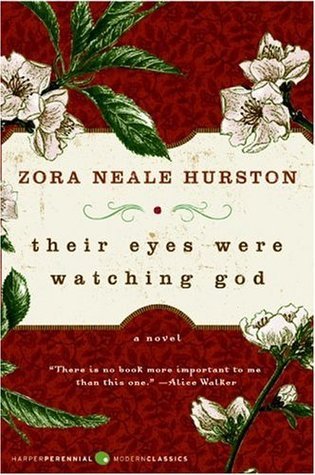Chapter 2
byChapter 2 of Their Eyes Were Watching God introduces Janie as she reflects on her life, describing it as a grand tree with branches that stretch across both joy and sorrow. Her childhood, spent under the care of her grandmother Nanny and the white Washburn family in West Florida, plays a significant role in shaping her early understanding of the world. While her white playmates accepted her as one of their own, it wasn’t until Janie was six that she fully realized her racial identity. This understanding came to light when she saw a photograph, where she was clearly different from the other children, marking her first true awareness of her Black identity. The moment was followed by laughter from her peers, signaling that she was now acutely aware of her differences, a realization that would shape her sense of self in the years to come.
Janie’s childhood memories are filled with moments of teasing and exclusion, particularly from a girl named Mayrella, who resented Janie’s closeness to the Washburn family. The bullying was not just rooted in jealousy but was also an expression of the racial prejudices that existed within their society. Nanny, aware of the struggles Janie faced, aspired to give her a better life—one that was free from the suffocating grip of racism and discrimination. Nanny hoped that Janie could eventually have her own home, a dream that she worked towards by acquiring land for Janie, thus offering her the possibility of a future built on independence and security. This desire for a better life was rooted in Nanny’s own experiences of hardship, and she wanted more for Janie than what her own life had been limited to. The generational difference between the two women becomes evident as Nanny’s aspirations for Janie clash with Janie’s emerging desires for freedom and self-discovery.
The narrative then shifts to a pivotal moment in Janie’s life, one that marks the beginning of her transition from girlhood to womanhood. On a spring afternoon, Janie finds herself drawn to a blossoming pear tree, which serves as a powerful symbol of awakening and desire. Under the shade of this tree, Janie first experiences the taste of love when Johnny Taylor kisses her, marking the end of her childhood innocence. The kiss symbolizes not just a moment of physical affection but the start of Janie’s exploration of her own desires and emotional independence. Upon her return home, Janie faces Nanny, who, noticing the changes in her, expresses concern about Janie’s newfound womanhood. Nanny fears the consequences of Janie’s unguarded femininity and begins to push her toward marriage, determined to protect her from the dangers that unrestrained passion and beauty can bring.
Nanny’s insistence that Janie marry soon comes from her own painful experiences, and she does not want Janie to fall into the same fate as her mother, who suffered greatly because of her lack of protection. Nanny introduces Logan Killicks as a suitable husband for Janie, seeing marriage as a necessary safeguard for her. Janie, however, rejects this suggestion with resistance, feeling trapped by Nanny’s protective instincts and the life she’s trying to arrange for her. This conversation highlights the generational tension between Janie’s desires for autonomy and Nanny’s protective measures, rooted in her own suffering and sacrifices. Janie longs for love that transcends duty, hoping to find emotional fulfillment rather than simply a secure and safe marriage. The chapter closes with Nanny recounting her own past struggles and the dreams she holds for Janie’s future. This deepens the emotional connection between Janie and Nanny, yet Janie’s resistance to Nanny’s plans reflects her yearning for a life of her own, a life defined by her own terms rather than the burdens of history and survival.

